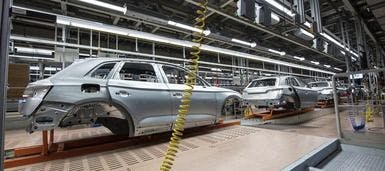Drive business growth with virtual reality development
Talk to an ExpertLeading enterprises, startups, and more have trusted Turing






Our virtual reality development service offerings
VR Business Consulting
Turing stands out as a leading virtual reality development company by offering end-to-end VR solutions, including business consulting. With vast industry experience, our virtual reality experts provide holistic consulting services that guide businesses through each stage of their VR implementation journey, from initial ideation to deployment.
Employing a personalized approach, our VR consulting solutions help clients increase their brand visibility, enhance digital experiences, boost customer engagement, and optimize business processes. With ample experience in VR-related technologies, including Unity, JavaScript, .NET, PHP, DynamoDB, AWS ElastiCache, and more, our experts provide customized solutions as per your unique VR goals and needs.
Our VR business consulting services include:
- Assessment - Conducting in-depth consultations to analyze your business’s specific goals, audiences, needs, and VR requirements. Our experts use these insights to create a tailored VR implementation strategy.
- Development consultancy - Our experts will guide your business to adopt a seamless VR development process, recommending the most ideal tools and technologies to be implemented. Our VR development team possesses in-depth experience in Unreal Engine, Unity, Amazon Sumerian, and SteamVR to create interactive and immersive virtual solutions.
- VR experience - Our virtual reality consultants also help businesses in conceptualizing VR experiences by designing ideal user interfaces, interactions, and navigation systems. We offer guidance on content creation, allowing your team to understand animation, 3D modeling, and audio integration.
- Deployment - Our VR consulting services go beyond the development lifecycle. Our industry experts help businesses establish effective VR deployment strategies, considering important factors like user training, hardware procurement, and continuous maintenance.
VR Architecture Design
Our virtual reality app development services also entail comprehensive architecture design solutions where we strategize software architecture best suited to your VR requirements. Our VR development team plans out an appropriate architecture design that enables high performance, smooth configurability, and rapid scalability for your VR application.
With in-depth knowledge of delivering world-class VR applications, our experts build custom solutions after analyzing your unique requirements. Through this, your business can offer users a sense of presence and allow them to explore and interact with your services or products virtually.
Our VR architecture design services include:
- In-depth analysis- Meticulously assessing your project requirements, goals, and the intended purpose of the VR environment. Our VR development team will collaborate closely with your designers and VR architects to collect 3D models, software architecture plans, and other relevant assets to build an accurate and detailed architectural representation.
- Modeling- Designing VR architectures using industry-standard tools like Havok, SketchUp, Autodesk Revit, or ArchiCAD to transform architectural designs and plans into 3D models.
- Design- Designing and building realistic virtual experiences, including adding materials, lighting, textures, and realistic physics simulations to enable high immersion levels for the VR application.
VR Software Development
As a leading VR development company, Turing provides end-to-end software development services that deliver personalized, scalable, and reliable VR solutions. Our virtual reality experts undertake every step of the development process, from assessment and strategizing to environment-building, performance optimization, and deployment.
Our VR software development services include:
- Assessment - Building the VR software development roadmap by understanding your business requirements and objectives, thoroughly defining the project scope, determining the target audience, and identifying the features and functionality of the app.
- Environment building - Building immersive virtual environments using industry-best VR engines like Unity and Unreal Engine. These offer a flexible and robust framework to create interactive VR experiences with realistic audio, graphics, and physics. Our VR experts also leverage APIs and SDKs provided by VR hardware manufacturers, ensuring seamless compatibility and integration.
- Functionality - Our experienced VR development team creates the required code, logic, and scripts to implement the desired functionality of your VR application. This involves designing user interfaces, integrating visual and audio assets, implementing user interactions, and creating interactive elements to provide an engaging user experience.
- Optimization - Conducting in-depth testing and optimization throughout development. Here, our VR experts identify and resolve performance bottlenecks, optimize graphics rendering, and ensure application compatibility across multiple VR devices and platforms.
- Deployment - Our virtual reality development services also extend to helping your team effectively deploy and distribute the VR application to the desired platforms. This may include submitting your application to the appropriate VR marketplaces or deploying it within your own infrastructure for internal use.
3D Modeling
Turing strives to be the go-to VR development company for businesses seeking cutting-edge virtual experiences to offer to their audiences. These are enabled through immersive virtual reality experiences built from visually appealing and realistic VR environments created by our intelligent 3D modeling solutions.
Our experts leverage comprehensive VR knowledge to create accurate and detailed 3D models tailored to your VR application goals. By understanding your business objectives and audience preferences, our VR experts establish an ideal modeling plan that ensures the fidelity and accuracy of the 3D models, while also determining their level of detail.
Our 3D modeling services include:
- Model creation - Our experienced VR development team uses industry-standard 3D modeling software like Maya, Blender, Photoshop, and Autodesk 3ds Max for texturing, modeling, and rendering characters, objects, and environments. Additionally, we implement polygonal modeling and sculpting techniques to build high-quality 3D models with intricate details for the best user experience.
- Rendering - We use advanced rendering techniques like ambient occlusion, global illumination, and PBR (physically-based rendering) to create a realistic virtual environment with immersive simulation to boost user engagement.
- Character modeling - If needed, our experts can also provide character modeling and simulation solutions. They are proficient in creating realistic characters with accurate animations, textures, and proportions, employing skeletal and rigging animation techniques to ensure smooth movement for a hyper-realistic experience.
VR Software Integration
Our virtual reality services also encompass holistic software integration services, allowing enterprises to seamlessly integrate VR applications into their existing workflows and systems.
Having helped leading tech organizations integrate VR technology into their systems, our experts provide comprehensive solutions to ensure efficient utilization and smooth interoperability of VR solutions, allowing your business to maximize value realization across industries.
Our VR software integration services include:
- Analysis - Our experts will evaluate your existing technological infrastructure, data requirements, and software applications to build the most effective integration strategy, aligned with your specific goals, needs, and desired outcomes.
- Hardware and software integration - We utilize various processes, technologies, and tools such as the SDKs provided by VR hardware manufacturers to enable seamless communication between the VR hardware and software applications after integration.
- Data compatibility - During the integration process, our VR development team collaborates closely with your IT team to ensure maximum compatibility and seamless data exchange between your existing systems and the VR solution. Our experts implement web services, APIs, or middleware to enable data synchronization, data transfer, and real-time interaction between back-end systems, databases, or third-party platforms and the VR application.
- Quality assurance - Our VR experts also conduct rigorous testing and quality assurance to ensure that the VR software integration carries the highest performance, security, and stability standards. Plus, we also provide extensive training and documentation to enable your team to properly manage and maintain the integrated solution.
Get started
Connect with one of our experts to discuss your needs and find the perfect solution for you
See what our clients have to say
View testimonials and reviews from our global clients who have accelerated their innovation with Turing.
Frequently asked questions
Find answers to common questions about training and enhancing high-quality LLMs.
What is virtual reality (VR) development?
VR development refers to the process of building interactive and immersive virtual experiences, encompassing processes such as designing, building, and implementing VR environments that users can explore and interact with. A typical VR development lifecycle involves requirements analysis, 3D modeling, software programming, audio integration, and user interface design.
What are the key components of a virtual reality development project?
While they may vary from one project to another, a VR development project generally has five key components, which are the following:
Conceptualization - Defining the objectives, goals, and target audience of the VR application, which involves identifying the desired interactions, features, and functionalities.
Design - Creating the interactive and visual elements of the desired visual environment, which involves 3D modeling of environments and objects, along with designing navigation systems and user interfaces.
Programming - Implementing the logic and functionality of the VR software, which involves writing the code to handle physics simulations, user interactions, audio integration, and animations.
Testing - Conducting rigorous tests to ensure the VR applications performs as intended, offer an excellent user experience, and meet the performance requirements. This also involves performance optimization, where fine-tuning of graphics rendering, resolving performance issues, and ensuring hardware compatibility are performed.
Deployment - Distributing the VR application to make it accessible to the intended users through the preferred channels, which involves publishing to VR marketplaces, deploying with enterprises for educational or training purposes, or building custom installations for unique use cases.
Can virtual reality development be customized to specific industry needs?
VR technology’s high versatility makes it ideal for being customized to meet specific industry needs. It can be tailored to address the unique goals and challenges of various industries such as education, gaming, real estate, healthcare, manufacturing, hospitality, etc.
What are the steps involved in the virtual reality development process?
The steps commonly involved in a virtual reality development process are - planning the VR application, designing and storyboarding, 3D modeling, asset creation, programming and development, iteration and quality assurance, and deployment.
Why choose Turing's Virtual development services?
Turing’s virtual reality development services employ a personalized approach to create VR solutions tailored to your specific business requirements. With vast development expertise in virtual reality, our VR experts deliver holistic solutions that can be readily implemented to accelerate business growth and elevate your brand positioning.
We also stand out as a leading VR development company by going beyond the development process and offering end-to-end VR consulting services that will guide your team to implement VR solutions, hassle-free.


